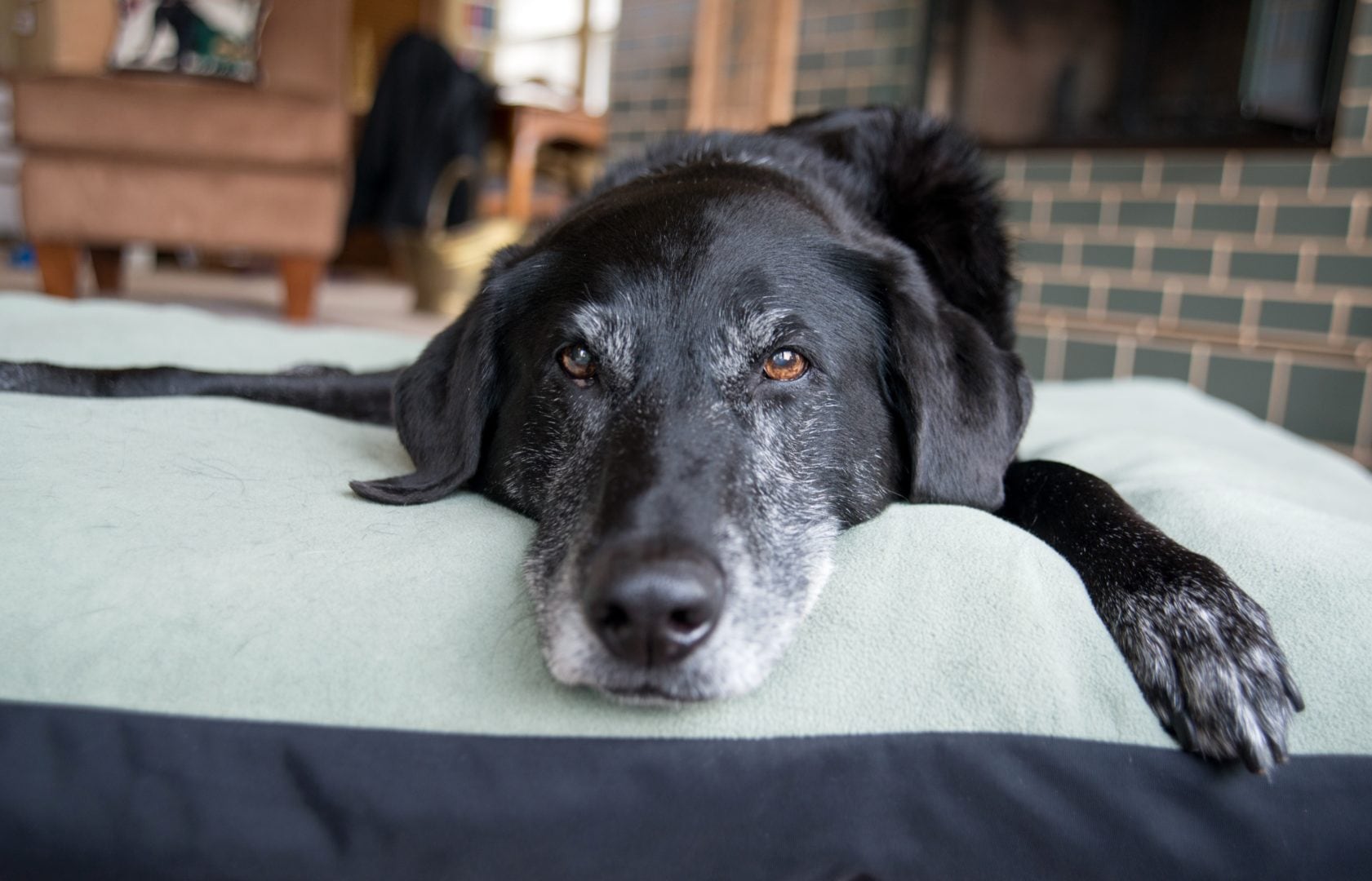You’ve decided that you want to adopt a dog. You may go into Adoption Day with a vision of your perfect dog in mind — or you may decide to just wing it. Either way, you’re probably certain about one thing: YOU WANT A PUPPY.
And you’re not alone: tons of prospective dog owners go into the adoption process assuming they’re going to leave the shelter with a cute little fuzz ball. But despite puppies’ cuteness and their exuberant little barks, there’s another dog in that shelter dogs who shows just as much promise of a happy, love-filled future: that senior dog sitting quietly in his kennel, calmly hoping to catch your eye.
It’s true that senior dogs need more care than younger pups. They’ll also have fewer years in your home than a puppy will. But they deserve to be rescued, too, and here are seven reasons for why they deserve a second look.
1) Older Dogs Are Less Destructive Than Puppies
Puppies are unquestionably adorable, but they also have a lot to learn. Your new shoes make great chew toys, and that corner in the living room is the perfect place for potty breaks. Senior dogs will likely come with some of their own baggage, but chances are that they’ve lived long enough to know that they should chew on their stuff, not yours.
2) Older Dogs Have a More Stable Temperament
When you adopt a puppy, you only see a tiny sliver of their personality, which will undoubtedly change over the years. While that can be an exciting adventure, it might not be good for a family looking for a calm dog that will love their kids, or an older couple who wants a dog who will relax with them. Senior dogs have a stable temperament, which the shelter staff will be able to tell you all about.
3) Older Dogs Come Equipped With Basic Commands — Puppies Don’t
Chances are pretty good that your senior dog will already be potty-trained, and might even know how to sit or lie down on command. It might be hard to tell at first because they’ll need the opportunity to get used to living a new life in a new place, but their knowledge will become apparent once they’re comfortable. The Humane Society says patience is key when bringing a new dog of any age home.
4) Older Dogs Actually Can Learn New Tricks
If it turns out your new friend doesn’t know some commands you’d like him or her to know, no worries. Contrary to the old adage, older dogs can learn new things just as well as their younger counterparts.
5) An Older Dog’s Idea of a “Perfect Day”? Spending a Low-Key Day With You
Let’s face it: Young dogs with a lot of energy can be exhausting. They’re a great choice for an active family, but might not be such a good fit for those who prefer a more low-key lifestyle. If you’re more the type to binge-watch some Netflix rather than go for a 5-mile morning jog, a senior dog will likely stay right by your side, no matter how many episodes you watch.
6) Older Dogs Typically End up in Shelters Through No Fault of Their Own
Sadly, even “good” dogs can find their way to a shelter, no matter how good they were or how much they’ve been loved. According to the ASPCA, the most common reason for why people give up their dogs is because they live in a place that doesn’t allow pets — a factor that’s certainly out of the dog’s control. (Other reasons include when an owner dies, when two owners get divorced, or when an owner realizes he just doesn’t have the kind of time to spend with his pup that he knows he should.)
7) You Could Save an Older Dog’s Life
Dogs can’t stay at shelters forever. Depending on the type of shelter senior dogs are in (especially kill shelters), it’s hard to say how long the shelter can keep them — or what happens to them once their stay is up. When you adopt a senior dog, you may just be saving the life of a pooch the shelter was ready to give up on.
Elizabeth Xu is an Ohio-based freelance writer who writes about all things pets, travel, and Disney. She adopted her Lhasa Apso three years ago. Follow her on Twitter for more.



